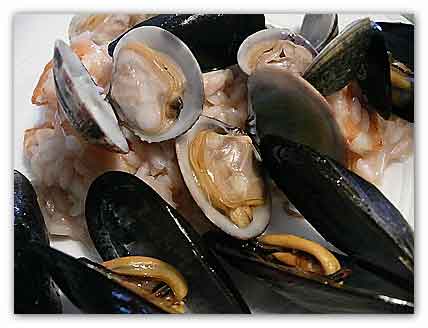|
Serum taurine, found in the dark meat of poultry may provide protection against coronary heart disease (CHD) in women with high cholesterol, according to a study by researchers at NYU Langone Medical Center. The same association was not seen in women with low cholesterol levels,
however.

The study, published online in the European Journal of Nutrition, evaluated the effects of taurine, a naturally-occurring nutrient found in the dark meat of turkey and chicken, as well as in some fish and shellfish, on CHD.
It is unclear whether synthetic taurine as an additive in food and drink products will have the same benefit observed in this study, and health effects of these products should be investigated separately, said principal investigator Yu Chen, PhD, MPH, associate professor of epidemiology at NYU School of Medicine, part of NYU Langone Medical Center. "We studied taurine found in the blood that originated from natural sources," Dr. Chen said. "The nutrient being added to energy drinks or supplements is man-made and is added in unstudied amounts. These products also often contain not only very high amounts of taurine, but a multitude of other ingredients as well – such as caffeine and ginseng – that may influence CHD risk."
There is very little information available about taurine. While there have been some animal studies that indicate taurine may be beneficial to cardiovascular disease, this is the first published prospective study to look at serum taurine and CHD in humans, she
explained.
Coronary heart disease is the leading killer of American men and women, causing one in five deaths. Also known as coronary artery disease, it is caused by the buildup of plaque in the arteries to the heart. Large prospective epidemiologic studies have provided evidence that nutritional factors are important modifiable risk factors for CHD.
Dr. Chen and colleagues conducted their study using data and samples from the NYU Women's Health Study. The original study enrolled more than 14,000 women, 34 to 65 years of age, between 1985 and 1991 at a breast cancer screening center in New York City. Upon enrollment, a wide range of medical, personal and lifestyle information was recorded and the data and samples continue to be utilized for a variety of medical studies.
For the serum taurine study, funded by the American Heart Association, the researchers measured taurine levels in serum samples collected in 1985 – before disease occurrence – for 223 NYUWHS participants who developed or died from CHD during the study follow up period between 1986 and 2006. The researchers then compared those samples to the taurine levels in serum samples collected at the same time for 223 participants who had no history of cardiovascular disease.
The comparison revealed serum taurine was not protective of CHD overall. However, among women with high cholesterol, those with high levels of serum taurine were 60 percent less likely to develop or die from CHD in the study, compared to women with lower serum taurine levels.
Dr. Chen explained that Caucasian women comprised more than 80 percent of the study population and, therefore, the results may not at this time be generalized to men or other races, but suggested that future studies should be conducted in these
populations.
The researchers are currently using NYUWHS data to evaluate the effect of taurine on the occurrence of stroke in another study funded by the National Heart, Lung, and Blood Institute
(NHLBI).
Co-authors on the European Journal of Nutrition paper are: Oktawia P. Wo´jcik, PhD, Karen L. Koenig, PhD, Anne Zeleniuch-Jacquotte, MD, Camille Pearte, MD, and Max Costa, PhD, all of NYU School of Medicine.
Source
NYU Langone Medical Center / New York University School of Medicine
(MDN)
|
![]()